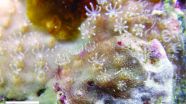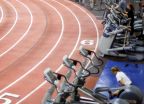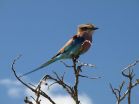(Press-News.org) Astronauts on the International Space Station (ISS) have a number of exercise options, including a mechanical bicycle bolted to the floor, a weightlifting machine strapped to the wall, and a strap-down treadmill. They spend a significant portion of each day working out to ward off the long-term effects of weightlessness, but many still suffer bone loss, muscle atrophy, and issues with balance and their cardiovascular systems.
To counteract such debilitating effects, research groups around the world are investigating artificial gravity -- the notion that astronauts, exposed to strong centrifugal forces, may experience the effects of gravity, even in space. Engineers have been building and testing human centrifuges -- spinning platforms that, at high speeds, generate G-forces strong enough to mimic gravity. An astronaut, riding in a centrifuge, would presumably feel gravity's reinforcing effects.
Now engineers at MIT have built a compact human centrifuge with an exercise component: a cycle ergometer that a person can pedal as the centrifuge spins. The centrifuge was sized to just fit inside a module of the ISS. After testing the setup on healthy participants, the team found the combination of exercise and artificial gravity could significantly lessen the effects of extended weightlessness in space -- more so than exercise alone.
Laurence Young, the Apollo Program Professor in MIT's Department of Aeronautics and Astronautics, says artificial gravity would be a huge benefit for astronauts, particularly those embarking on long-duration space missions, such as a journey to Mars. The risks, he says, are uncertain, but potentially significant.
"With exploration-class missions, like Mars, where you're gone for three years, you could run the risk of having astronauts not sufficiently conditioned to perform effectively, and also to not be in good health when they finally get to the surface of Mars," says Young, a former NASA payload specialist. "You really don't want to send a jellyfish to represent us on another planet."
Young says a human centrifuge aboard a Mars-bound spacecraft would help keep an astronaut in shape over the many months it would take to get to the Red Planet. He and his colleagues, former graduate students Ana Diaz and Chris Trigg, have published results from their experiments in the journal Acta Astronautica.
Spinning up artificial gravity
The team's compact centrifuge resembles a rotating metal cage with three main elements: a chair; a cycle ergometer, or the mechanical portion of a stationary bicycle; and a suite of sensors to measure cardiovascular variables such as blood pressure, heart rate, respiration rate, muscle activity, and foot forces.
The researchers conducted experiments to test human responses and exercise performance at varying levels of artificial gravity. The experiments involved 12 healthy subjects, who participated in three sessions, each consisting of a bicycling workout under one of three artificial gravity levels: zero G, in which the centrifuge did not rotate; 1 G, measured at the feet, in which the centrifuge spun at 28 revolutions per minute (rpm); and 1.4 G, also measured at the feet, at 32 rpm.
"When it spins around, we create centrifugal force, which depends on the angular velocity, or how fast we are rotating -- the higher the angular velocity, the greater the artificial gravity," Diaz says.
During each session, participants were asked to pedal for 15 minutes at three workout intensities, or levels of resistance, set by the cycle ergometer. The remaining 10 minutes involved spinning up and slowing down the centrifuge.
Beyond a "universal solution"
After each session, participants filled out a survey to gauge symptoms such as motion sickness and light-headedness. Overall, Diaz found that participants tolerated the experiments well, suffering little motion sickness even while spinning at relatively high velocities. Participants only reported feelings of discomfort while initially speeding up and slowing down.
"During the spinning process, participants were pushed against the chair due to the centrifugal force, making them sit comfortably, and facilitating their leg biomechanics for biking," Diaz says.
As the researchers increased the centrifuge's spin, raising its artificial gravity, participants used correspondingly more force to pedal -- an unsurprising but encouraging result.
"That tells us that if we use artificial gravity, we're able to get higher foot forces, and we know higher foot forces are good for bones, and help you generate more bone," Diaz says. "Even if we expected this, we were able to quantify it and find a relationship between foot forces and artificial gravity."
Similarly, as artificial gravity intensified, so did participants' overall cardiovascular activity, a response that Diaz says may be beneficial over the long term.
Young says the study may begin to bridge two seemingly opposing camps: those who believe exercise alone will prevent bone loss, muscle atrophy, and other effects of extended weightlessness, and those who believe in artificial gravity as the solution.
"I think the principal finding here is supporting the conclusion that exercise alone is not a sufficient countermeasure," Young says. "For the first time, we're showing there's a symbiosis when one combines the best aspects of exercise, and the best aspects of artificial gravity. So I feel this is an important demonstration."
INFORMATION:
This research was funded in part by the National Space Biomedical Research Institute and a Skoltech/MIT seed grant.
The latest Supplement to the American Ornithologists' Union Check-list of North American Birds was published this week in The Auk: Ornithological Advances, and includes several major updates to the organization of the continent's bird species. More than just a list, the Check-list groups birds into genera, families, and orders based on their evolutionary relationships, and some of the most significant changes in this year's Supplement involve the tanagers, family Thraupidae. "Recent genetic studies have overturned much of what we thought we knew about what constitutes a ...
July 2, 2015 - While heart disease is the number one cause of death in both sexes, it poses special considerations in women--with risks often beginning in childhood and changing at different stages of life. Insights on cardiovascular disease (CVD) risk in women and girls throughout the life span are shared in a special symposium feature in the June issue of The American Journal of Medical Sciences (AJMS). The official journal of the Southern Society for Clinical Investigation (SSCI), AJMS is published by Wolters Kluwer.
Two symposium papers seek to increase understanding ...
ATLANTA - July 2, 2015-Cancer survivors who smoke report fewer negative opinions about smoking, have more barriers to quitting, and are around other smokers more often than survivors who had quit before or after their diagnosis, according to a new study appearing in Psycho-Oncology. The authors say these factors point to potential targets to help cancer survivors quit.
Quitting smoking is important for cancer prognosis, but some cancer survivors continue to smoke. Although initial quit rates are high among those diagnosed with cancers strongly linked with smoking (e.g., ...
A group of scientists led by Dr Kara Hoover of the University of Alaska Fairbanks and including Professor Matthew Cobb of The University of Manchester, has studied how our sense of smell has evolved, and has even reconstructed how a long-extinct human relative would have been able to smell.
The sense of smell plays a decisive role in human societies, as it is linked to our taste for food, as well as our identification of pleasant and unpleasant substances.
We have about 4 million smell cells in our noses, divided into about 400 different types. There is tremendous ...
CORVALLIS, Ore. - Engineers at Oregon State University have invented a way to fabricate silver, a highly conductive metal, for printed electronics that are produced at room temperature.
There may be broad applications in microelectronics, sensors, energy devices, low emissivity coatings and even transparent displays.
A patent has been applied for on the technology, which is now available for further commercial development. The findings were reported in Journal of Materials Chemistry C.
Silver has long been considered for the advantages it offers in electronic devices. ...
Research conducted in Okinawa, Japan, by graduate student Yu Miyazaki and associate professor James Davis Reimer from the University of the Ryukyus has found a very unusual new species of octocoral from a shallow coral reef in Okinawa, Japan. The new species can be considered a "living fossil", and is related in many ways to the unusual blue coral. The study was published in the open access journal ZooKeys.
Unlike scleractinians, most octocorals lack a hard skeleton, and therefore many have the common name "soft coral". One exception is the endangered genus Heliopora, ...
COLUMBIA, Mo. - For years, news organizations that post content on the Internet have allowed readers to leave comments about stories. Often, these readers' comments become a forum for political debates and other communication that the news organizations do not consider important to their journalistic practices. Now, researchers from the University of Missouri School of Journalism have found that editors and owners of news organizations may want to pay more attention to what their readers are saying about their news stories in order to better serve their consumers. Timothy ...
CLEMSON, S.C. -- Poor sleep habits can have a negative effect on self-control, which presents risks to individuals' personal and professional lives, according to Clemson University researchers.
In a study titled "Interactions between Sleep Habits and Self-Control," Clemson psychologists concluded a sleep-deprived individual is at increased risk for succumbing to impulsive desires, inattentiveness and questionable decision-making.
"Self-control is part of daily decision-making. When presented with conflicting desires and opportunities, self-control allows one to maintain ...
PROVIDENCE, R.I. [Brown University] -- Everyone knows that exercise generally helps the cardiovascular system, but much remains unknown about how the benefits arise, and what to expect in different people who exercise to improve their health. To gain a more precise understanding of how exercise improves health and whom it helps most, researchers analyzed the results of 160 randomized clinical trials with nearly 7,500 participants. The review appears open access in the Journal of the American Heart Association.
"Our meta-analysis is one of the first studies to systematically ...
Study found 35% fewer bird species in agricultural habitats
Researchers say farmland is a poor substitute for natural areas but simple improvements could make a difference to biodiversity conservation
Research led by the University of Exeter has found a substantial reduction in bird species living in cultivated mango orchards compared to natural habitats in Southern Africa. The results, which are published today in the journal Landscape Ecology, highlight the value of assessing habitats prior to land use change to predict the impact of agriculture on biodiversity.
The ...


